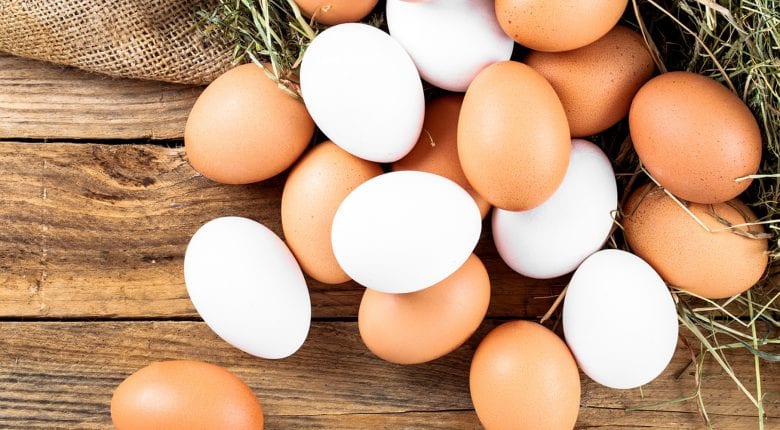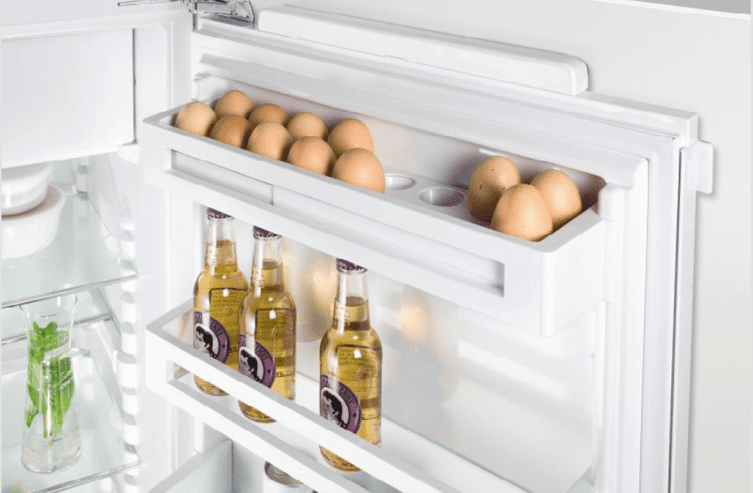You have some eggs left over but the best before date was yesterday. Or, you’ve kept a few eggs in the fridge and can’t quite remember when you got them. Should you worry about eating them?
You’re not alone. According to the latest consumer research, Britons are throwing away 720m eggs every year and the scale of waste, it has been suggested, lies with overcautious consumers relying on best-before dates to decide if eggs are fresh enough to eat. Luckily there are some easy ways to check your eggs for freshness…
Ways to test how fresh your eggs are
1. The Water Test
Place your egg in a tall glass of cold water. If it stays at the bottom, then it’s fresh; if it lifts and bobs at a bit of an angle, it’ll be older but fine to use; if it floats to the surface, then it’s getting pretty old and is probably not safe to use. Eggs rise to the surface in this way because, over time, the moisture from inside the egg evaporates through the shell and is replaced by air. The more air there is in the egg, the better it floats – and of course the older it is.
2. The ‘Crack’ Test
Crack open your egg and see what the yolk and the white do. If the egg yolk bulges and the white is viscous and gathered tightly around the yolk, then the egg is still fresh. However, if the yolk is flat and the egg white runny, then the egg is old. What happens is that the protein chains (various substances linked together) in the egg white break up over time so that, in an old egg, the yolk and white no longer cling tightly together and so run more.
3. The Sloshing Test
If you shake the egg and there’s no sloshing noise from inside, then it’s fresh and can be eaten. If, on the other hand, the egg makes a sloshing noise when you shake it, air has gotten into it and expanded the natural air bubble, so it’s best not eaten.
4. Pay attention to the ‘best before’ date
With the ‘best before’ date the supplier guarantees that the eggs will be at their best at least until this date, provided that they are stored properly. Generally, eggs can still be safely eaten for some time past this date, if they’re well cooked through, but it’s prudent to conduct the aforementioned freshness checks first.

Hygiene also plays an important role when handling eggs and, with regard to Salmonella, in particular, you need to pay attention to the following:
- Buy the freshest eggs you can and use them in good time.
- Store eggs in a refrigerator because Salmonella hardly multiplies at temperatures below 6°C, whereas at room temperature its growth is explosive. Retrospective cooling will not reverse any damage.
- For recipes that require raw eggs, only use the very freshest eggs.
- Simmer your breakfast eggs for at least 5 minutes in boiling water.
- Once eggs have passed their ‘best before’ date they should only be eaten if thoroughly cooked through. Salmonella is destroyed at 70°C.
- If an egg’s shell cracks it should be used immediately and only in well-cooked dishes.

Where should I store eggs in my Liebherr refrigerator?
Eggs can be stored in the main refrigerator compartment or inner door storage for 15 days, or in a Liebherr BioFresh compartment for up to 45 days.
Which test do you tend to rely on to find out whether your eggs are fresh? Get in touch with us on Facebook, Twitter, Instagram or Pinterest and let us know!